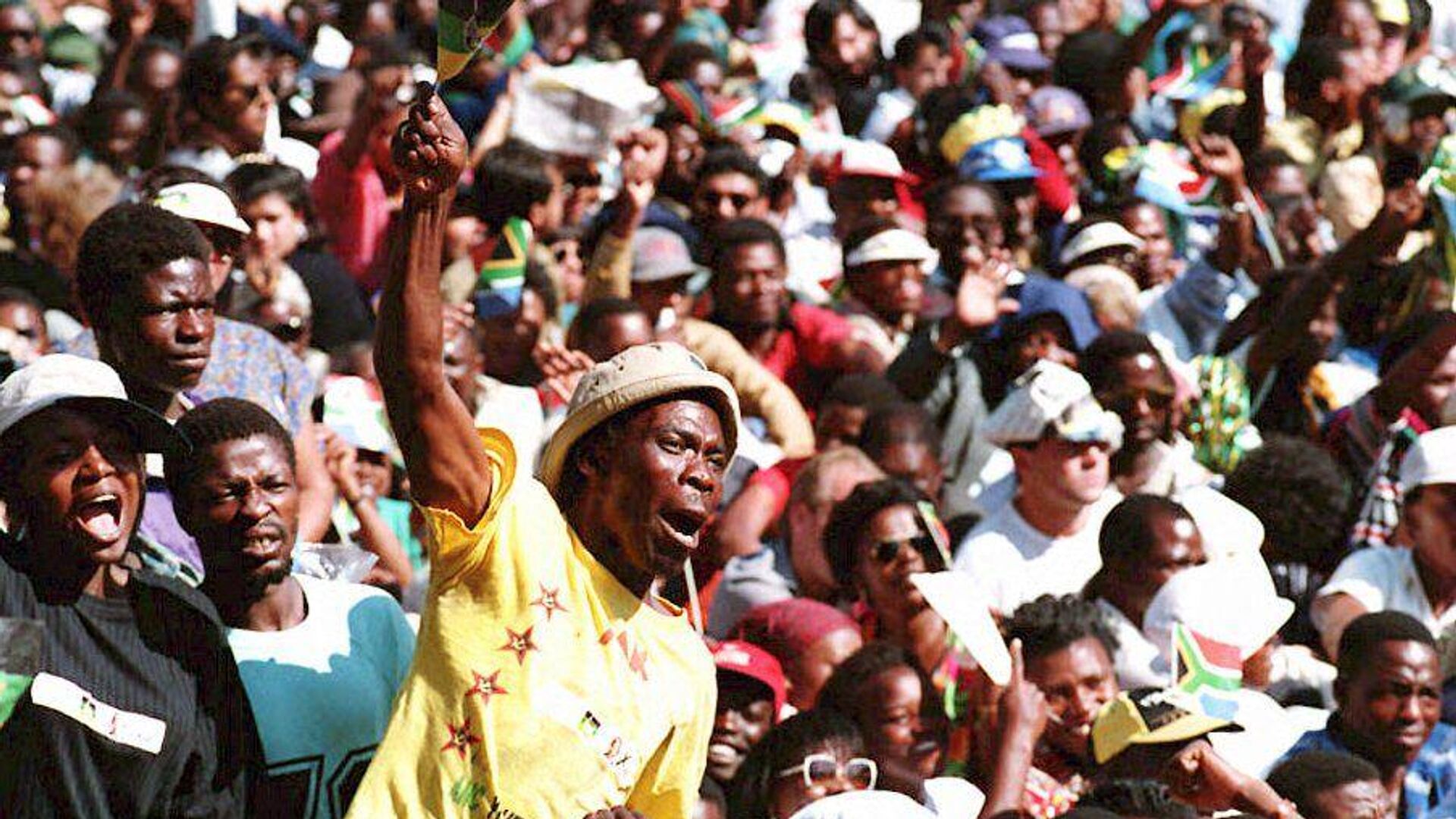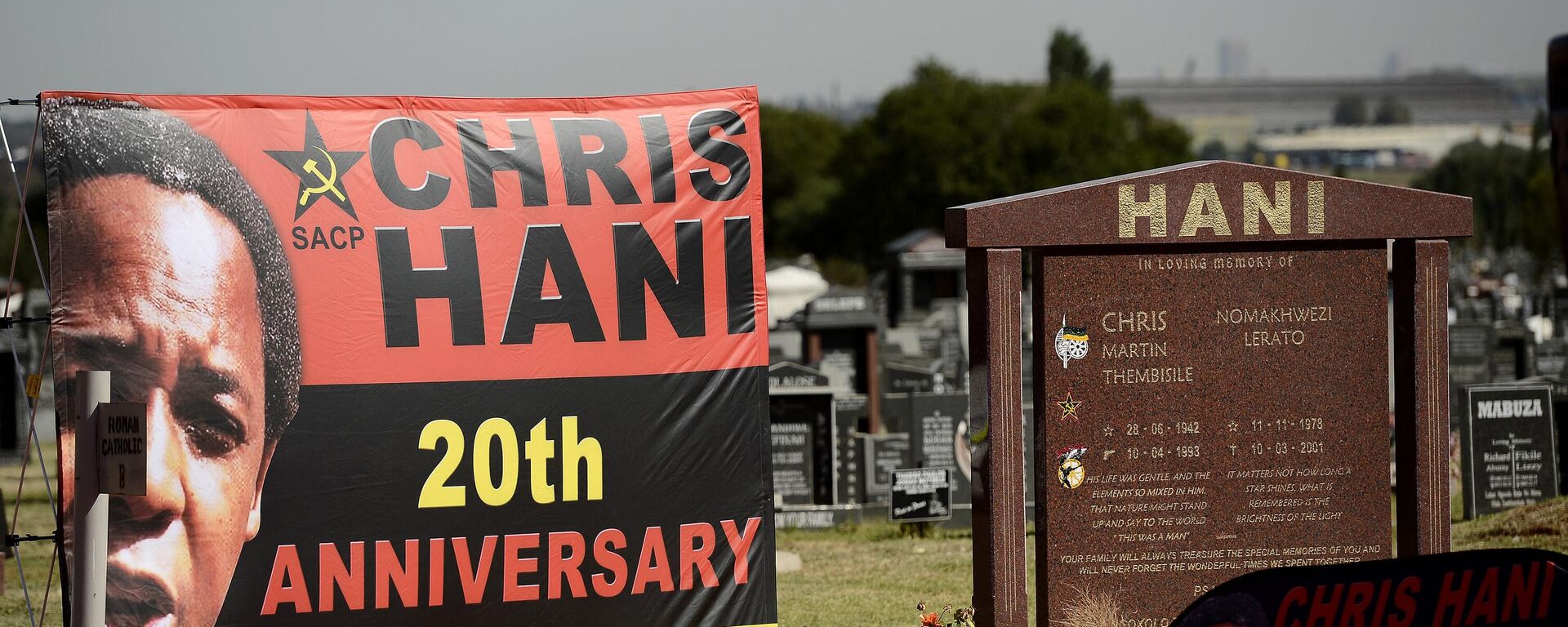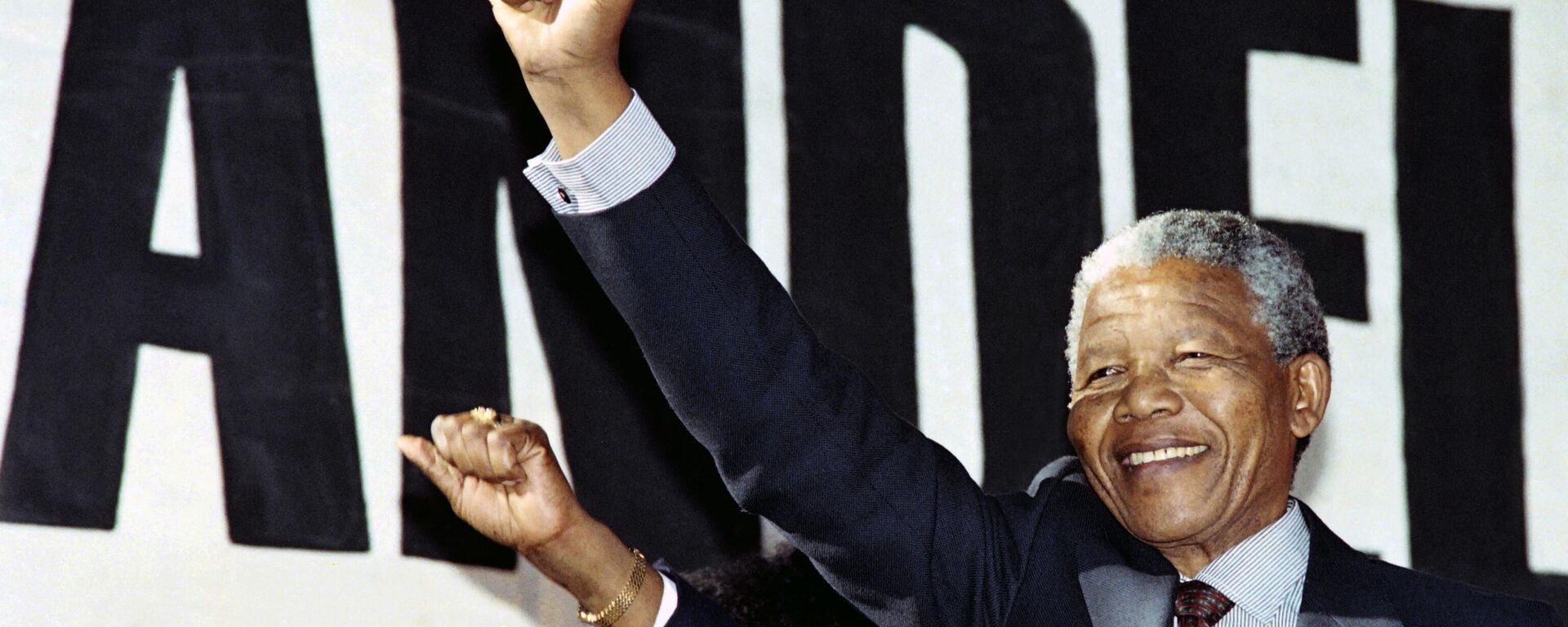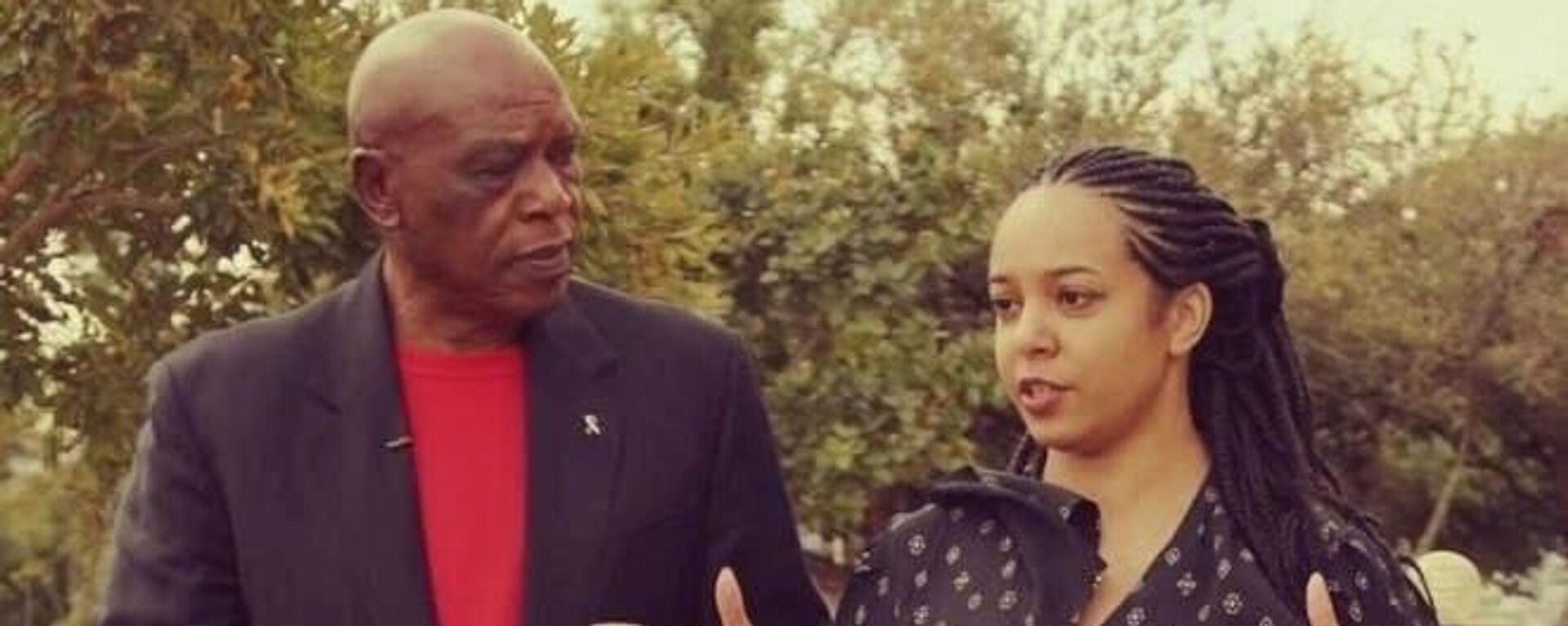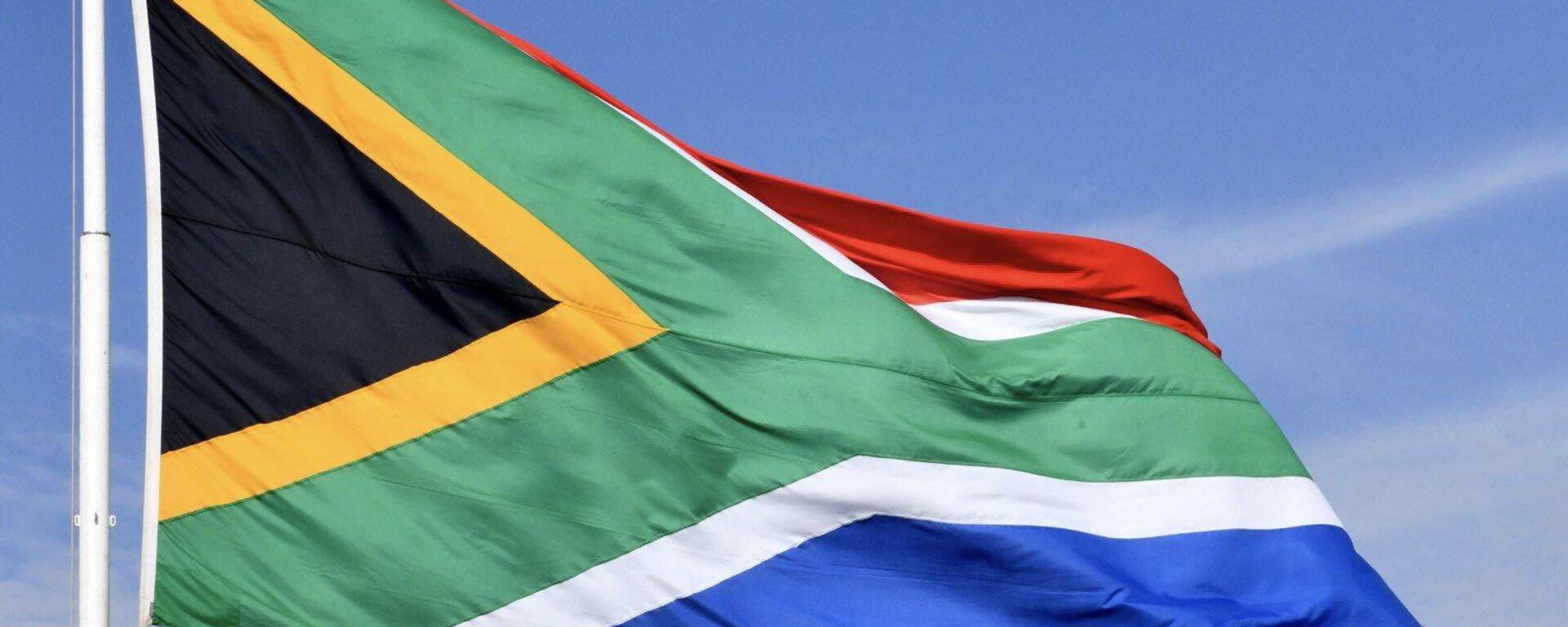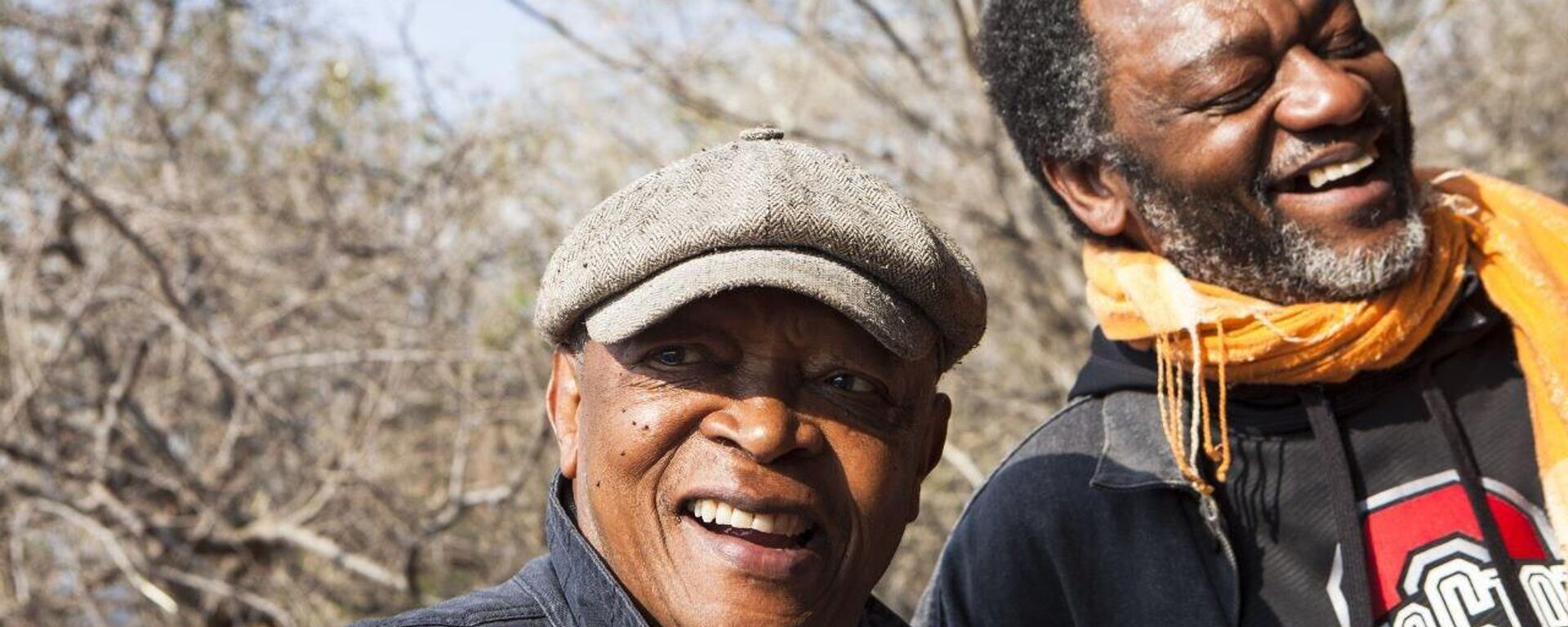https://en.sputniknews.africa/20230510/absolute-revolution-sadf-veteran-reflects-on-mandelas-inauguration-anniversary-1059156497.html
'Absolute Revolution': SADF Veteran Reflects on Mandela's Inauguration Anniversary
'Absolute Revolution': SADF Veteran Reflects on Mandela's Inauguration Anniversary
Sputnik Africa
On May 10, 1994, history was made in South Africa when Nelson Mandela became the country's first black head of state. On this occasion, Sputnik spoke with Peter Hamilton, a veteran of the SADF in the late 1980s and early 1990s.
2023-05-10T16:07+0200
2023-05-10T16:07+0200
2023-05-10T16:12+0200
southern africa
south africa
nelson mandela
inauguration
former president
interview
opinion
africa in details
https://cdn1.img.sputniknews.africa/img/07e7/05/0a/1059164749_0:64:903:572_1920x0_80_0_0_7787cf93759591871be84765dd743c29.jpg
Today marks the 29th anniversary of a landmark moment in South Africa's history. After decades of apartheid and racial segregation, Nelson Mandela's victory marked a turning point for the country.The election of Mandela, who is remembered for fighting to end apartheid and spending 27 years in prison, also marked the beginning of a new era of democracy and equality in the country, demonstrating the power of democracy and the resilience of the South African people's spirit.This year marks the 29th anniversary of this historic event. To commemorate this occasion, Sputnik spoke with Peter Hamilton, a veteran of the South African Defense Force (SADF) in the late 1980s and early 1990s.Hamilton was called up for emergency service in the event of civil unrest during the election and inauguration of Nelson Mandela, who served as South Africa's president from 1994 to 1999. In this interview, Hamilton, a white South African born and raised in Johannesburg, shared his experiences and perspective on this pivotal moment in his country's history.According to Hamilton, had it not been for Mr. Mandela and his policies, the trajectory South Africa was on would have been "horrific", potentially leading to a civil war or even worse. Therefore, referring to the 1994 election simply as an election does not do justice to its significance. Hamilton believes that the term "election" does not carry enough weight to fully capture the magnitude of the event and its impact on the future of the country.The veteran described South Africa as a country deeply divided during the time of apartheid. He notes that British influence during the 19th century contributed to the country's history, particularly with the introduction of apartheid policies that treated African people as second-class citizens.These policies were later adopted by the Afrikaner governments and expanded into what was called 'petty apartheid', a great injustice to individual freedom and choice. As a white South African, Hamilton himself was militarized from a young age and had no choice but to register for the army at age 16, as it was the law. He explains that the education system and upbringing in South Africa were formative, with two great fears in life: the "red danger" of communism and the "black danger" of black people.Hamilton explained that from a young age, he and others were taught to fear people of different cultures and were not given the opportunity to interact with them on a personal level. The mindset of "them and us" contributed to the conflict and hatred that characterized apartheid. He acknowledged that Mandela and his African National Congress (ANC) party did the country a great service at the time by helping to unite people of different cultures and perspectives and calling for peace.The former military man said the country went through a "period of great uncertainty" in the run-up to the 1994 elections and Mandela's inauguration, with the country's military unsure which direction to take.Hamilton, who was a sergeant at the time, said that during that period he was called up for mandatory training, put into a special unit in Kimberley, trained with helicopters, and prepared for the worst. Senior officers were convinced that a civil war was looming.During the elections, Hamilton's unit conducted patrol operations for maximum visibility in urban areas as well as night patrols in rural areas in darkness, observing any movement.The former officer and his troops were tense, hearing about bombs going off in Pretoria and surrounding townships, planted by extreme right and disgruntled Afrikaners who wanted to disrupt the elections. They were expecting a bloodbath and were away from their families, unable to protect them. However, once the elections took place and the results started filtering through, there was a sense of relief amongst the soldiers, Hamilton recalled.Hamilton added that about 90% of the soldiers that were on the parade ground saluted the new flag, despite his expectations that "at least 40%, 50% of them [would] turn their backs on it."The former South African officer noted that military discipline, as well as respect and recognition of the country's authority, were "very important" at the historic moment, and they played a crucial role in helping the nation avoid a "catastrophe" at the time.Hamilton explained that Mandela's call to work together, forget the past, and forgive one another was crucial in combination with the dedication of the armed forces and police service, and the consensus of the population that change was necessary. According to him, these factors led to a miracle, where people came together as one nation to find solutions to the problems the country faced, despite decades of ongoing issues. This miracle continues to inspire people as they work together to solve the numerous problems still facing the country, he said.The 52-year-old acknowledged that South Africa is currently facing "tumultuous times", with problems such as crime and the supply of electricity. Despite the challenges, South Africans remain united in finding solutions. Hamilton credited the late President Mandela, whom he described as a "father figure," for this unity and expressed gratitude for all he did to bring people together and allow everyone, regardless of background, to have a voice.In order to overcome present-day problems and challenges, South Africans "need to remember" the legacy of Mandela, who passed away on December 5, 2013, and "apply it", according to Hamilton.
https://en.sputniknews.africa/20230413/patriotism--passion-against-exploitation-sacp-chief-on-chris-hanis-legacy-1058571213.html
https://en.sputniknews.africa/20221205/1058557183.html
https://en.sputniknews.africa/20230328/1058471522.html
https://en.sputniknews.africa/20230427/we-dare-not-stop-working-for-freedom-prince-buthelezi-on-south-africas-freedom-day-1058879100.html
https://en.sputniknews.africa/20230405/1058468298.html
southern africa
south africa
Sputnik Africa
feedback@sputniknews.com
+74956456601
MIA „Rossiya Segodnya“
2023
Muhammad Nooh Osman
https://cdn1.img.sputniknews.africa/img/07e7/04/0a/1058467512_0:0:1280:1280_100x100_80_0_0_ec723833bcbfcaed2e21952965ad99e4.jpg
Muhammad Nooh Osman
https://cdn1.img.sputniknews.africa/img/07e7/04/0a/1058467512_0:0:1280:1280_100x100_80_0_0_ec723833bcbfcaed2e21952965ad99e4.jpg
News
en_EN
Sputnik Africa
feedback@sputniknews.com
+74956456601
MIA „Rossiya Segodnya“
Sputnik Africa
feedback@sputniknews.com
+74956456601
MIA „Rossiya Segodnya“
Muhammad Nooh Osman
https://cdn1.img.sputniknews.africa/img/07e7/04/0a/1058467512_0:0:1280:1280_100x100_80_0_0_ec723833bcbfcaed2e21952965ad99e4.jpg
mandela inauguration, mandela legacy, mandela boers, mandela white, mandela afrikaners
mandela inauguration, mandela legacy, mandela boers, mandela white, mandela afrikaners
'Absolute Revolution': SADF Veteran Reflects on Mandela's Inauguration Anniversary
16:07 10.05.2023 (Updated: 16:12 10.05.2023) Muhammad Nooh Osman
Writer/Editor
On May 10, 1994, history was made in South Africa when Nelson Mandela became the country's first black head of state and its first democratically elected president in a fully representative election that included the African country's black population for the first time.
Today marks the 29th anniversary of a landmark moment in South Africa's history. After decades of apartheid and racial segregation, Nelson Mandela's victory
marked a turning point for the country.
The election of Mandela, who is remembered for fighting to end apartheid and spending 27 years in prison, also marked the beginning of a new era of democracy and equality in the country, demonstrating the power of democracy and the resilience of the South African people's spirit.
"Today, all of us do, by our presence here, and by our celebrations in other parts of our country and the world, confer glory and hope to newborn liberty. Out of the experience of an extraordinary human disaster that lasted too long, must be born a society of which all humanity will be proud," Mandela said in his historic inauguration speech. "The time for the healing of the wounds has come. The moment to bridge the chasms that divide us has come."
This year marks the 29th anniversary of this historic event. To commemorate this occasion, Sputnik spoke with Peter Hamilton, a veteran of the South African Defense Force (SADF) in the late 1980s and early 1990s.
Hamilton was called up for emergency service in the event of civil unrest during the election and inauguration of Nelson Mandela, who served as South Africa's president from 1994 to 1999. In this interview, Hamilton, a white South African born and raised in Johannesburg, shared his experiences and perspective on this pivotal moment in his country's history.
"At the time of the inauguration of Mr. Mandela as our first democratically elected president, I found myself in a situation that was rather tense and unique," Hamilton said. "It was a time of great turmoil and of great anxiety for a lot of people on all sides of the spectrum that make up the different races and linguistic groups, as well as the different cultural groups that reside in this great country of ours."
According to Hamilton, had it not been for Mr. Mandela and his policies, the trajectory South Africa was on would have been "horrific", potentially leading to a civil war or even worse. Therefore, referring to the 1994 election simply as an election does not do justice to its significance.
Hamilton believes that the term "election" does not carry enough weight to fully capture the magnitude of the event and its impact on the future of the country.
"It was a complete change, was an absolute revolution in the way in which people thought and the way in which people viewed each other as human beings. Black, white, colored, whatever race you might have belonged to. Because in those days we were allocated to racial groups, and it was a very tense and emotional metamorphosis that this country had to go through," he stated.
The veteran described South Africa as a country deeply divided during the time of apartheid. He notes that British influence during the 19th century contributed to the country's history, particularly with the introduction of apartheid policies that treated African people as second-class citizens.
These policies were later adopted by the Afrikaner governments and expanded into what was called 'petty apartheid', a great injustice to individual freedom and choice.
"Black South Africans were second class citizens, they were treated with absolute disdain. And the children that were brought up under that system, both black and white, were indelibly changed," Hamilton stressed. "And it was not of their own will in accord, but because of the circumstances they found themselves in."
As a white South African, Hamilton himself was militarized from a young age and had no choice but to register for the army at age 16, as it was the law. He explains that the education system and upbringing in South Africa were formative, with two great fears in life: the "red danger" of communism and the "black danger" of black people.
Hamilton explained that from a young age, he and others were taught to fear people of different cultures and were not
given the opportunity to interact with them on a personal level. The mindset of "them and us" contributed to the conflict and hatred that characterized apartheid.
He acknowledged that Mandela and his African National Congress (ANC) party did the country a great service at the time by helping to unite people of different cultures and perspectives and calling for peace.
"When Mr. Mandela came up onto the podium, he didn't call for violence or retribution, he called for peace. And that is something that was probably the greatest relief in the hearts and mind of all white South Africans at the time," Hamilton recalled.
The former military man said the country went through a "period of great uncertainty" in the run-up to the 1994 elections and Mandela's inauguration, with the country's military unsure which direction to take.
Hamilton, who was a sergeant at the time, said that during that period he was called up for mandatory training, put into a special unit in Kimberley, trained with helicopters, and prepared for the worst. Senior officers were convinced that a civil war was looming.
During the elections, Hamilton's unit conducted patrol operations for maximum visibility in urban areas as well as night patrols in rural areas in darkness, observing any movement.
The former officer and his troops were tense, hearing about bombs going off in Pretoria and surrounding townships, planted by extreme right and disgruntled Afrikaners who
wanted to disrupt the elections. They were expecting a bloodbath and were away from their families, unable to protect them.
However, once the elections took place and the results started filtering through, there was a sense of relief amongst the soldiers, Hamilton recalled.
"And I remember the day that the results were finalized, and we had a parade. And on this parade ground we were standing there was a whole battalion of us, battalion strength," he said. "A thousand men were standing on this parade ground, and they lowered the flag, the old South African flag, and they raised the new flag."
Hamilton added that about 90% of the soldiers that
were on the parade ground saluted the new flag, despite his expectations that "at least 40%, 50% of them [would] turn their backs on it."
"It was a reflection indeed of what people really wanted deep down. They wanted peace, they wanted reconciliation, and even as soldiers, this is what we wanted," he stated, adding that the soldiers were prepared to serve the government of President Mandela regardless of his "political beliefs".
The former South African officer noted that military discipline, as well as respect and recognition of the country's authority, were "very important" at the historic moment, and they played a crucial role in helping the nation avoid a "catastrophe" at the time.
"As a sergeant serving at the time, I must say thank you guys for everything that you did and for serving your country and for making sure that there was a peaceful transition," Hamilton said. "And that is what actually made the big difference, besides the fact that Mr. Mandela came up there, and he preached peace."
Hamilton explained that Mandela's call to work together, forget the past, and forgive one another was crucial in combination with the dedication of the armed forces and police service, and the consensus of the population that change was necessary.
According to him, these factors led to a miracle, where people came together as one nation to find solutions to the problems the country faced, despite decades of ongoing issues. This miracle continues to inspire people as they work together to solve the numerous problems still facing the country, he said.
The 52-year-old acknowledged that South Africa is currently facing "tumultuous times", with problems such as crime and the supply of electricity. Despite the challenges, South Africans remain united in finding solutions.
Hamilton credited the late President Mandela, whom he described as a "father figure," for this unity and expressed gratitude for all he did to bring people together and allow everyone, regardless of background, to have a voice.
"If I were to see him in person one day, I would thank him. I'd say thank you, sir, for everything that he did for us and for bringing us to the table and allowing us to have an opinion no matter where we came from," the veteran officer said.
In order to
overcome present-day problems and challenges, South Africans "need to remember" the legacy of Mandela, who passed away on December 5, 2013, and "apply it", according to Hamilton.
"We need to look where we're going and all the children of this country, the unborn, as well as the newly born, and those that are old, those that are experienced, those that have lived through the suffering we need to look at all of this and melt it down and turn it into a united front," the ex-military service member concluded.
